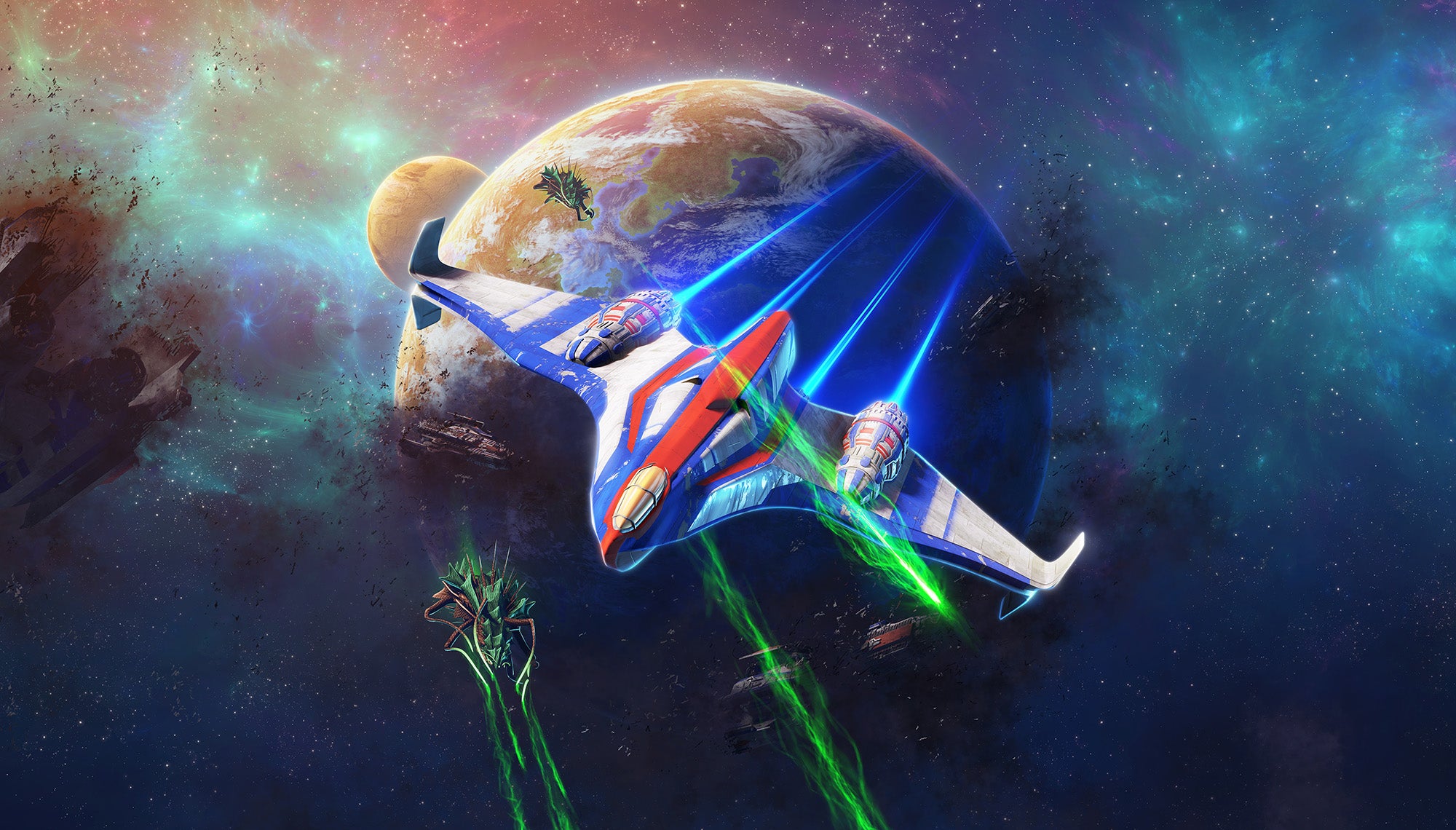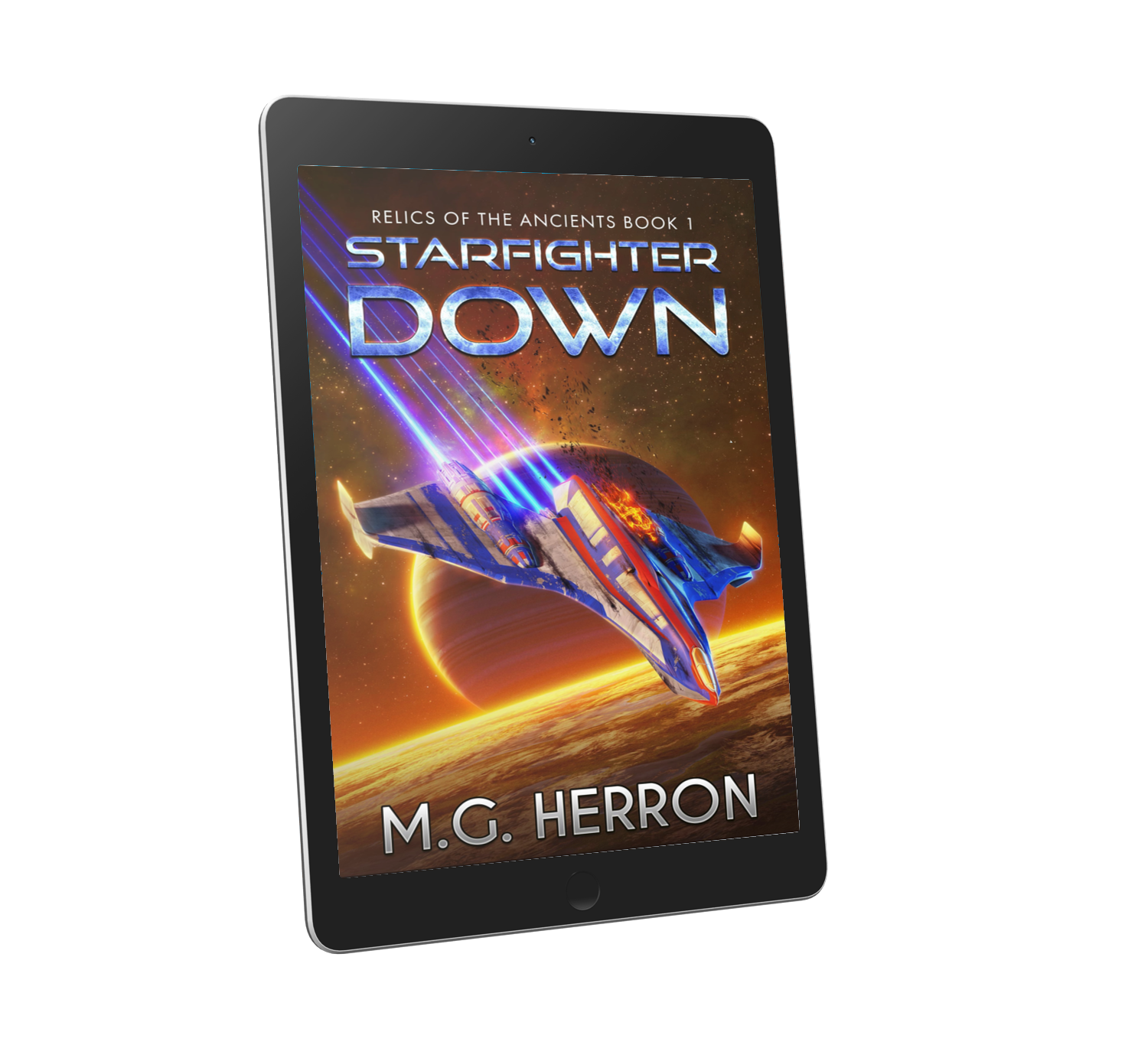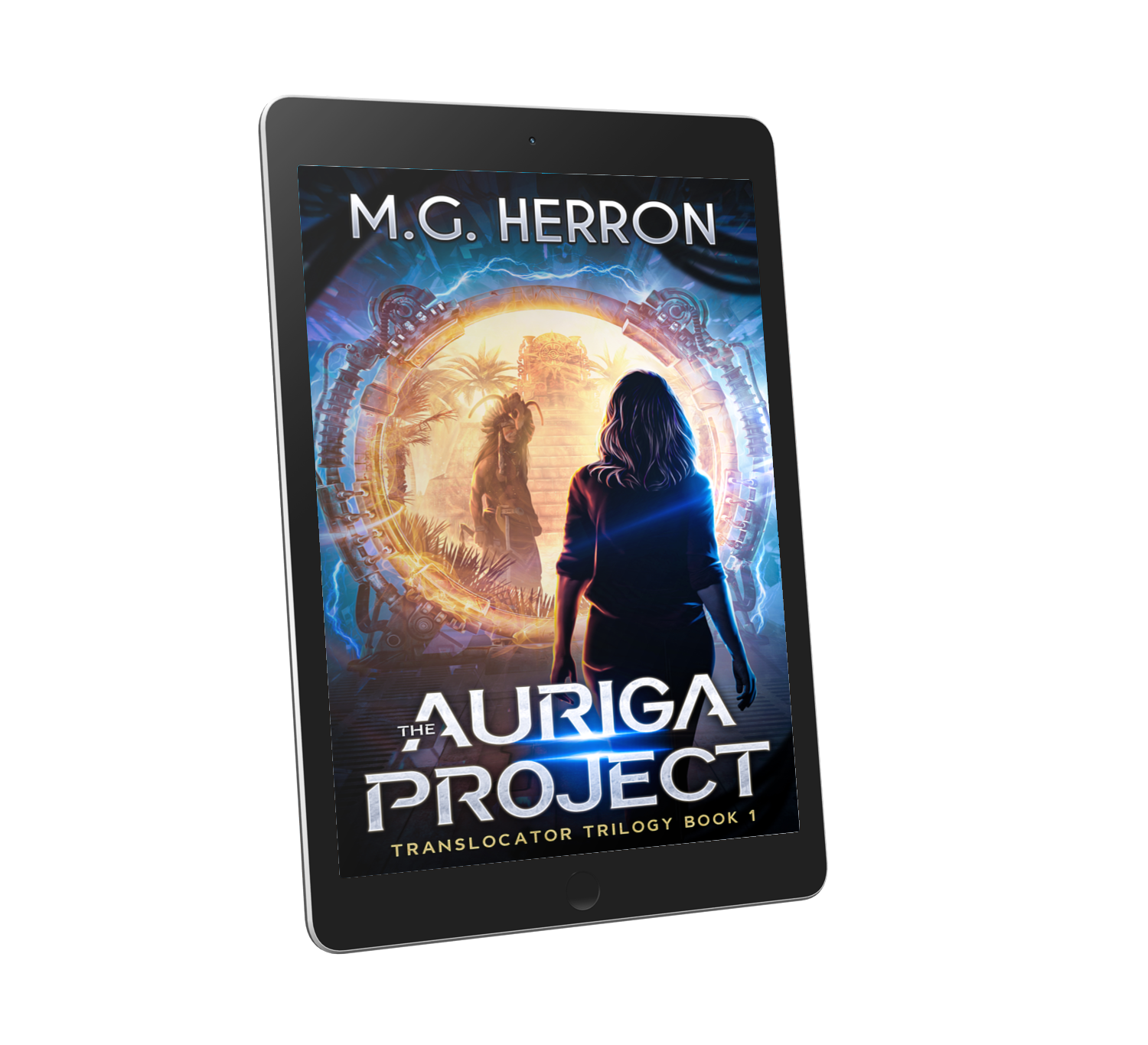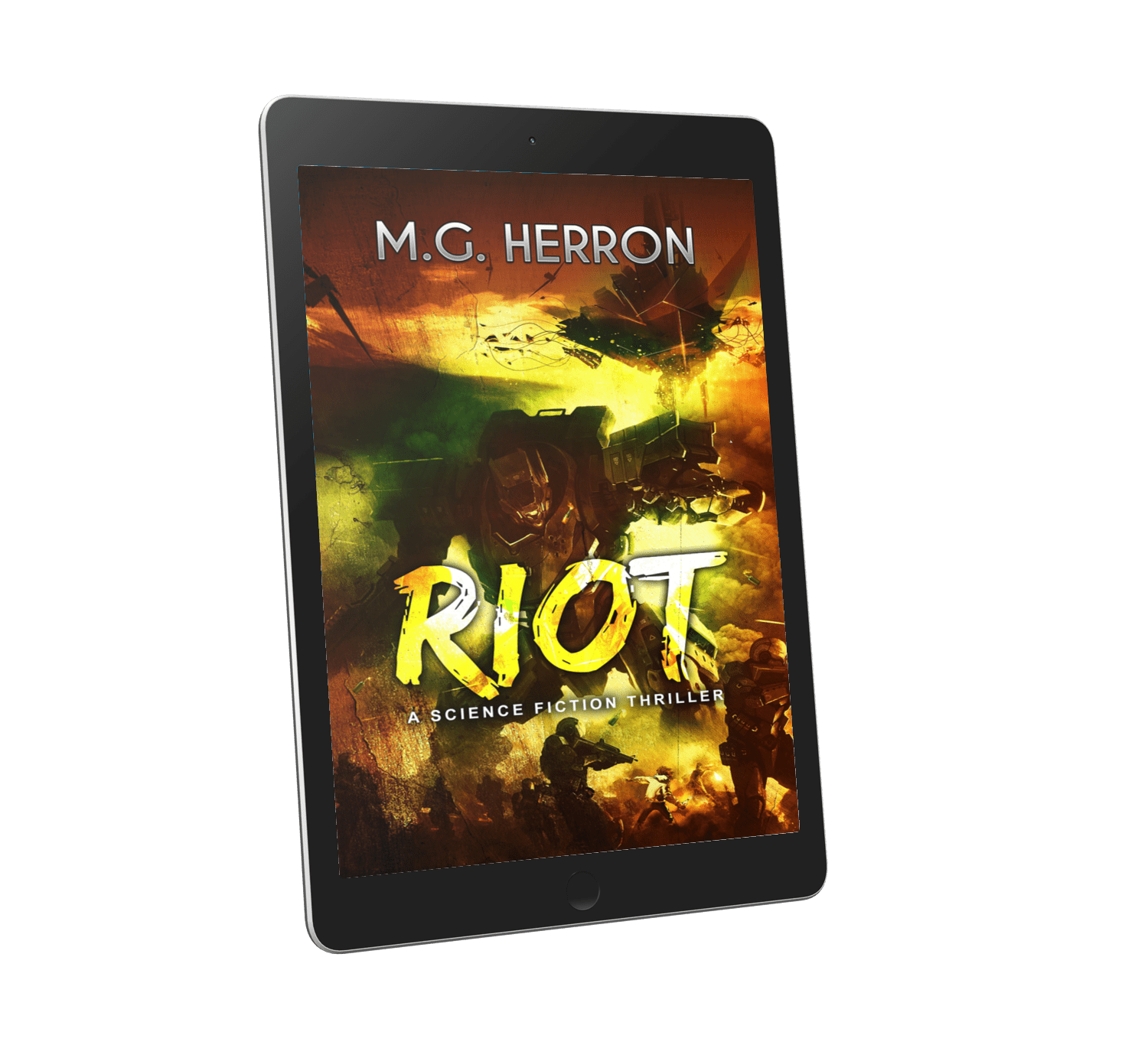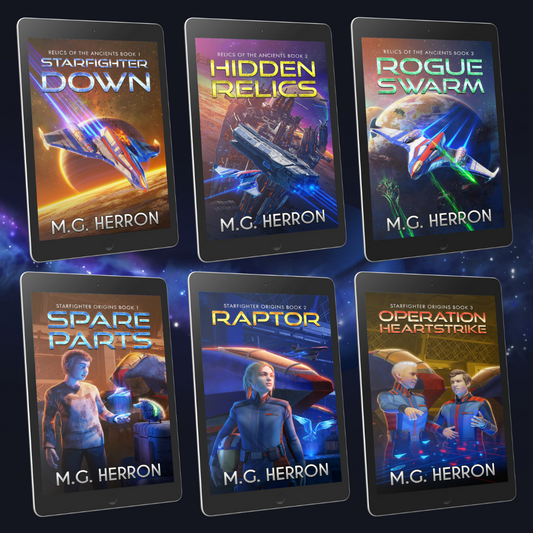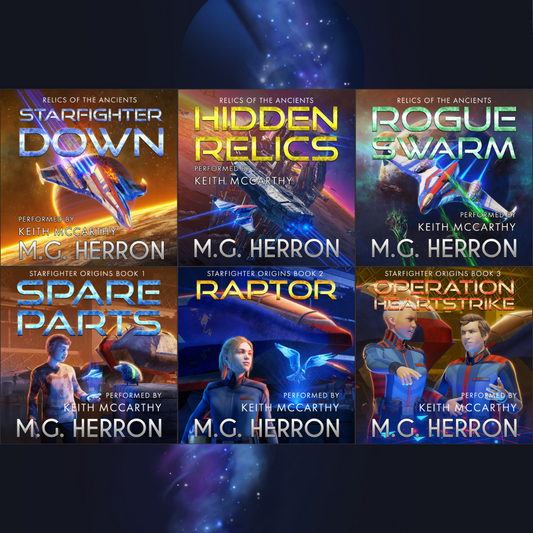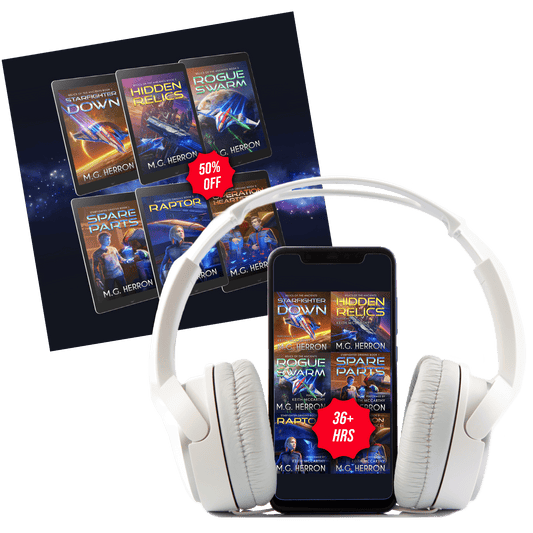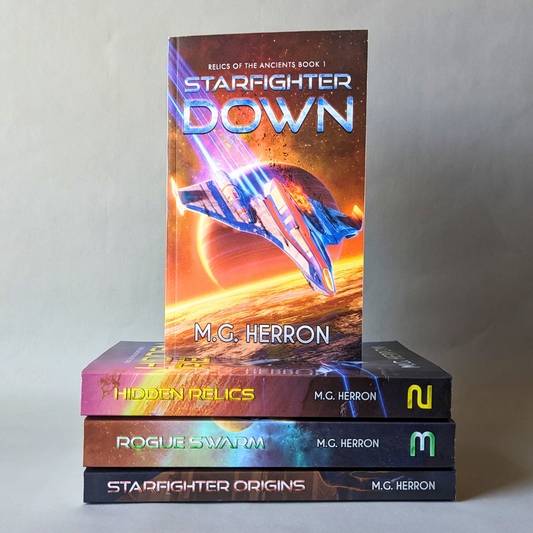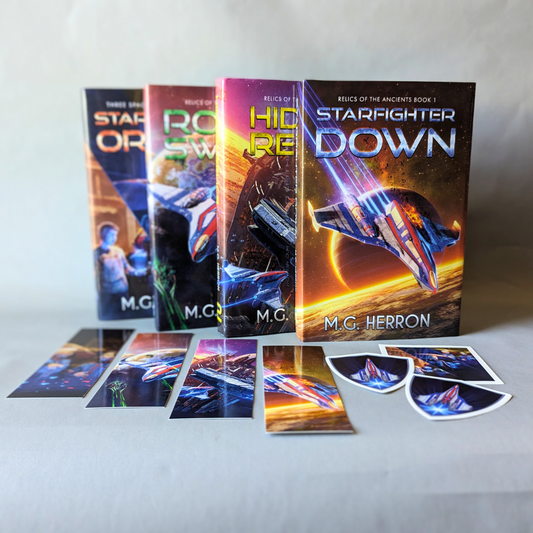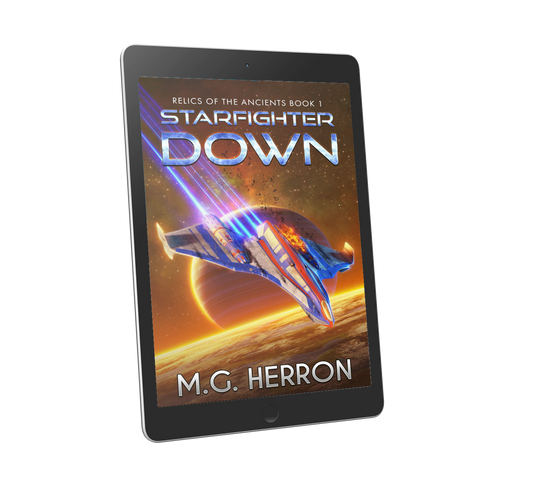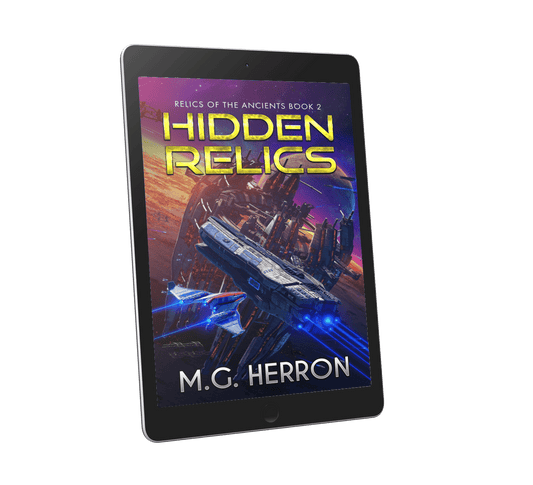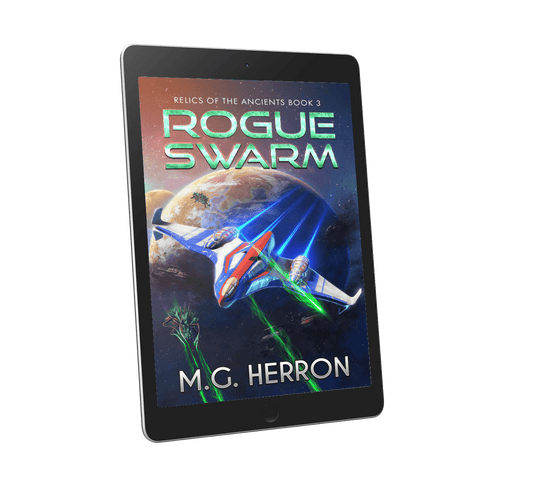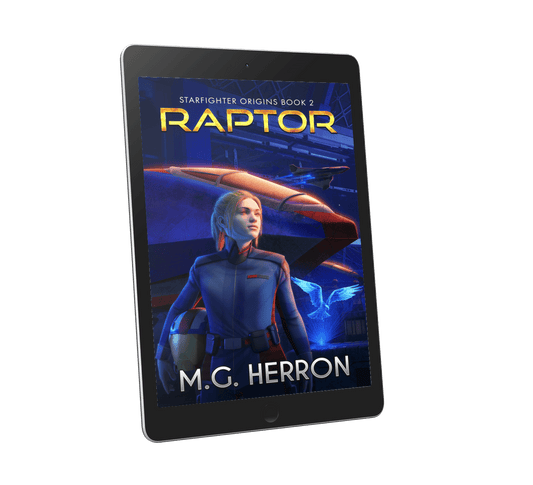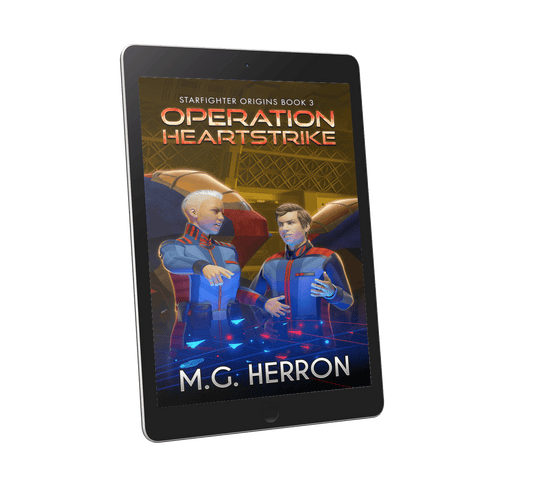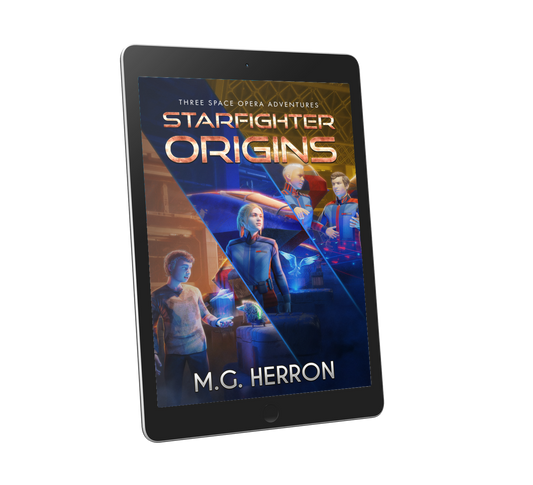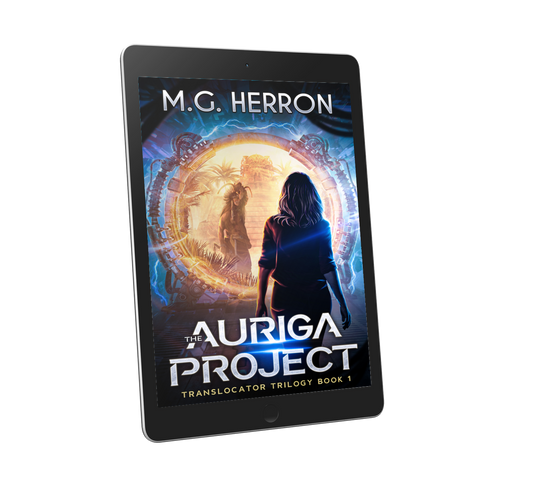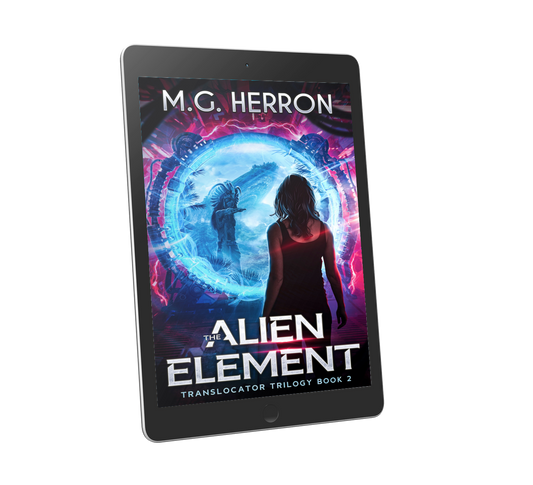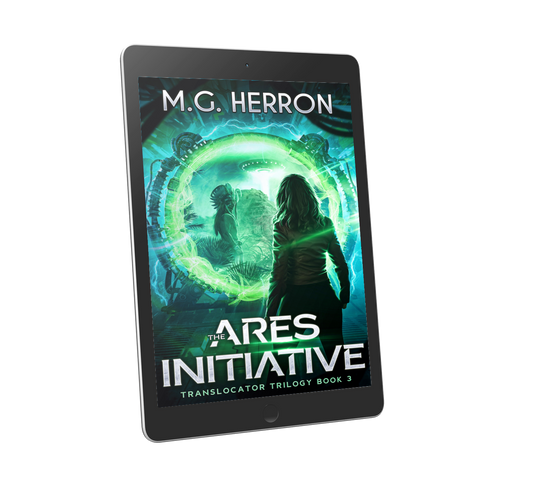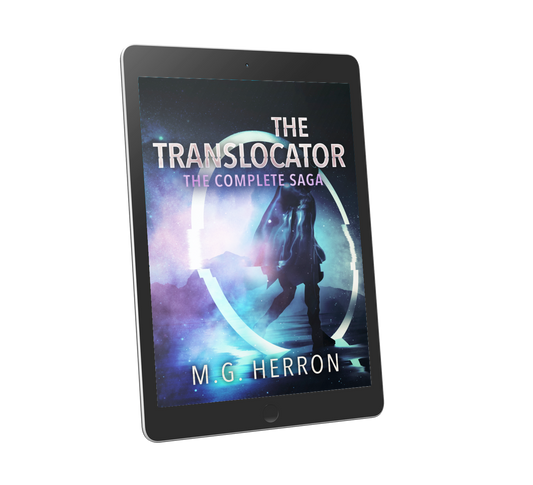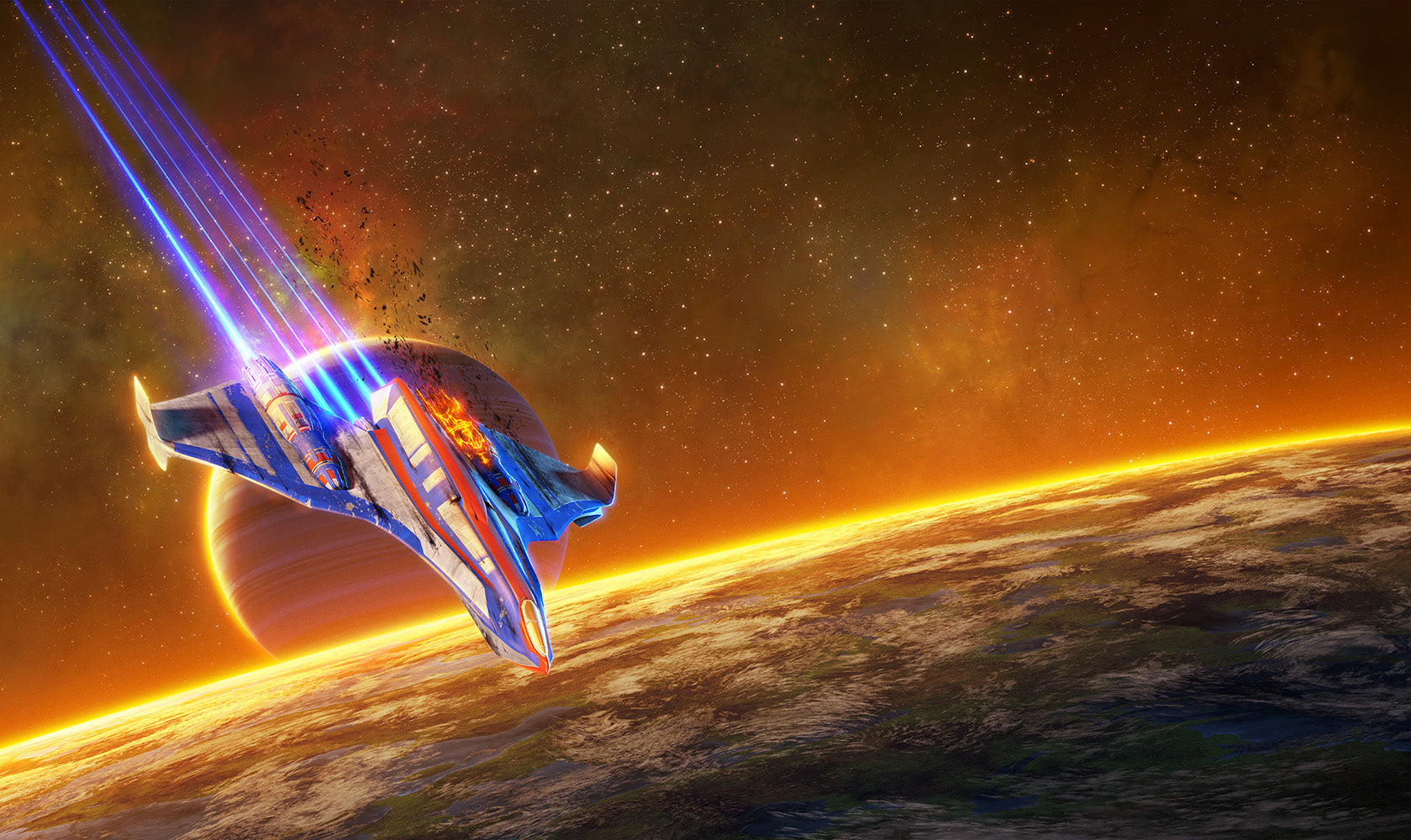
Spellbinding space opera adventure
High-octane science fiction full of intrepid starfighters, lovable bots and terrifying aliens. Read M.G. Herron!
Start your next series
1
/
of
3
Bundle books and save
Save big on M.G. Herron's book bundles! Only available here.
-
Relics of the Ancients: Exclusive E-book Bundle
Regular price $19.99Regular priceUnit price / per$38.94Sale price $19.99Sale -
Relics of the Ancients: Exclusive Audiobook Bundle
Regular price $29.99Regular priceUnit price / per$85.94Sale price $29.99Sale -
Relics of the Ancients: Exclusive Digital Bundle
Regular price $45.99Regular priceUnit price / per$124.94Sale price $45.99Sale -
Relics of the Ancients: Exclusive Paperback Bundle
Regular price $64.99Regular priceUnit price / per$99.96Sale price $64.99Sale -
Relics of the Ancients: Exclusive Signed Hardback Bundle
Regular price $119.99Regular priceUnit price / per$179.96Sale price $119.99Sale
1
/
of
5

Who is M.G. Herron?
M.G. Herron is the author of more than 10 bestselling sci-fi adventure novels. He gets up every morning excited to tell stories full of space travel, lovable bots, alien civilizations, and ancient mysteries. MG (also known as Matt) writes from Austin, TX, where he lives with his patient family and loyal canine sidekick.
What readers are saying...
-
Starfighter Down is “excellent Sci-Fi, action-packed, and spellbinding.”
–R. Adkins, Kindle reader
-
Culture Shock is “a fast moving SF joy ride.”
–The Mysterious Amazon Customer, Kindle reader
-
M.G Herron is “a real original story teller.”
–Anonymous, Goodreads reader
Relics of the Ancients
Unveil the ancient past. Defend humanity's future.
-
Book 1: Starfighter Down
Regular price $5.99Regular priceUnit price / per$7.99Sale price $5.99Sale -
Book 2: Hidden Relics
Regular price $7.99Regular priceUnit price / per -
Book 3: Rogue Swarm
Regular price $7.99Regular priceUnit price / per -
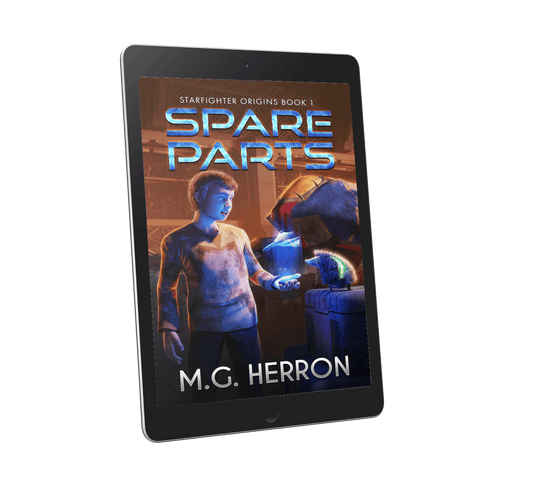 Sale
SaleBook 1: Spare Parts
Regular price $3.99Regular priceUnit price / per$4.99Sale price $3.99Sale -
Book 2: Raptor
Regular price $4.99Regular priceUnit price / per -
Book 3: Operation Heartstrike
Regular price $4.99Regular priceUnit price / per -
Books 1-3: Starfighter Origins
Regular price $7.99Regular priceUnit price / per
1
/
of
7
Translocator Trilogy
Where high-tech disaster meets ancient Mayans. A complete portal fiction trilogy!
-
Book 1: The Auriga Project
Regular price $0.00Regular priceUnit price / per$4.99Sale price $0.00Sale -
Book 2: The Alien Element
Regular price $6.99Regular priceUnit price / per -
Book 3: The Ares Initiative
Regular price $6.99Regular priceUnit price / per -
Books 1-3: The Translocator Trilogy
Regular price $9.99Regular priceUnit price / per
1
/
of
4
Browse books by format
-
-
-
Paperbacks
Browse PaperbacksFor those who just love the vanilla scent and comforting feel of a paperback novel.
